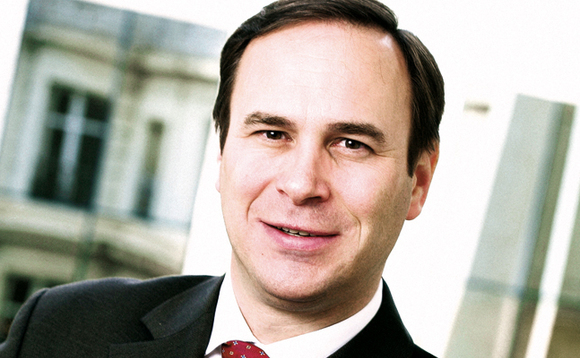
LP interview: Secondaries come first

Anneken Tappe interviews Idinvest CEO Christophe Bavière and asks why secondaries funds are increasingly attractive for European investors
Many investors had to rethink their investment approaches in the light of the financial crisis and the situation Europe is in now. Have you seen a change in the group of LPs that are interested in secondary funds?
Yes, we have seen a significant increase in interest. In the current market and in light of the financial crisis, the traditional primary fund approach is being challenged. We are raising a new vehicle that is 100% focused on secondary transactions. It is obvious why the secondary market is attractive to investors: it has a shorter duration and generates immediate returns. And opportunities in the market are quite rich. What we have seen is that investors develop more sophisticated approaches. They want exposure to a specific part of the secondary market to manage risks. To get a good return you need to focus on a niche.
What impact does an increase in distressed portfolios have on secondaries?
If you think that the underlying economy is poor - let's assume that - this raises concerns, such as what risks should you look at for secondary transactions. Our immediate reaction at Idinvest is that it is appropriate to play this risk through the secondary as opposed to the primary market.
The trust in Europe is not very high, but in secondaries you see what you're buying and you don't pay for a single deal GPs are working on.
As a rule of thumb for private equity strategies, remember to never buy the benchmark, it's always about cherry-picking. The worst thing to do is to make an investment decision without considering your own preferences. The current secondary market is perfect for that.
What are your thoughts on family offices as a credible investor group in the private equity space? Some say they are looking for more direct involvement, some say they should stick with a passive approach.
Family offices are not a homogenous group. The large ones behave more or less like real institutional investors. But yes, we are supported by family offices as well. They tend to be very open to somewhat tailored investment solutions.
Plus, sometimes you need a co-investor and family offices can be a good choice, as they can react much faster than some institutional investors. They are a credible group, all in all, and they complete an investor base very nicely.
They can also be a good resource for secondary transactions. We bought from family offices at a significant discount before. Then they could refocus on their core investment strategy. It can be a rational decision to sell fast at a big discount, and it was a very good decision for us to buy in this case.
Are there any regions or sectors in Europe that are particularly interesting in terms of future dealflow?
Last year, we could buy a portfolio of mid-market deals in the automobile industry in northern Italy. Nobody would have a look at it, not because it is not a good investment, but because of the words ‘Italy' and ‘automobile'.
I'm also thinking of Spanish companies exporting to domestic markets in South America. We have seen opportunities in 2012, but there could be more like that in the future. Overall, we will continue to concentrate on small transactions. Private equity is an inefficient asset class: it is illiquid and not very transparent. But in the case of deals in the range of ⇔5-35m, there may be more value for money.
Investors often say that private equity requires a lot of time and energy for an ultimately more complex business. That's why you should only focus on those components of the market that you know best. We access assets without intermediaries and thereby get more information on them. In the end, you create alpha when you have specific access to information. That's why it's best to find a niche.
Not too long ago, there were some GPs who said mezzanine was becoming a rarity in Europe. What is your opinion on the mezzanine market?
Currently, we see a lot of situations where you get a cash coupon plus PIK, making it a return largely north of 10%, as well as access to warrants. On a usual deal, these warrants will yield a 15% return if equity makes 25%. But to buy cheap and make 25% IRR today... Well, it's rare, as there is still a lot of dry powder and high valuations.
In short, mezzanine generates returns for investors from day one and our analysis is that on some specific transactions, the final expected IRR will be competing (and outperform) the equity sponsor's IRR.
In continental Europe, 2012 saw a lot of deals for which it was better to be exposed through mezzanine than through equity. Certainly, this is a momentary observation and it adapts to the current market situation.
At the same time, 2012 has seen a rally in high-yield bonds and now you would have to move into the really distressed bonds to generate the same returns.
Latest News
Stonehage Fleming raises USD 130m for largest fund to date, eyes 2024 programme
Sponsor acquired the public software group in July 2017 via the same-year vintage Partners Group Global Value 2017
Stonehage Fleming raises USD 130m for largest fund to date, eyes 2024 programme
Czech Republic-headquartered family office is targeting DACH and CEE region deals
Stonehage Fleming raises USD 130m for largest fund to date, eyes 2024 programme
Ex-Rocket Internet leader Bettina Curtze joins Swiss VC firm as partner and CFO
Stonehage Fleming raises USD 130m for largest fund to date, eyes 2024 programme
Estonia-registered VC could bolster LP base with fresh capital from funds-of-funds or pension funds








